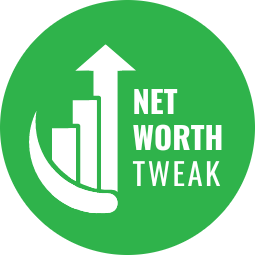Financial Need: Use Short-Term Loans Wisely
In today’s fast-paced world, unplanned expenses can appear suddenly, causing significant financial stress. Whether it’s a sudden car repair, a medical emergency, or an unexpected bill, having immediate access to cash can make all the difference. In times like these, short-term loans serve as a vital financial tool, offering quick solutions when they are needed most. Many people turn to online lenders such as MaxLend loans for support, seeking quick and easy access to funds required without the complications of traditional borrowing.
Short-term loans are engineered to bridge the gap during financial crunches. They’re often used by individuals who either can’t wait for their next paycheck or need more than their savings can provide. These options can alleviate the pressure and allow borrowers to deal with emergencies without resorting to long-term debt, making them especially useful for those experiencing temporary shortfalls.
Understanding how these financial products work and the associated responsibilities is essential for anyone considering a short-term loan. When used appropriately, these loans can prevent larger financial disruptions and provide a pathway out of a difficult time. However, borrowers should also be aware of the implications and make informed decisions at every stage.
As with any financial obligation, it is crucial to weigh the benefits against potential risks, assess all available options, and borrow responsibly to safeguard your long-term well-being.
Understanding Short-Term Loans
Short-term loans are a specific type of personal financing designed to provide quick access to funds when unforeseen expenses arise. They usually involve borrowing a few hundred to a few thousand dollars, with repayment schedules generally capped at one year or less. These loans can be obtained through in-person lenders or by choosing to apply online, often requiring limited paperwork and quick approval timelines, which makes them a practical option in urgent situations.
Unlike traditional bank loans, short-term loans are usually unsecured. This means you won’t need to put up any collateral, such as your home or vehicle. However, lenders compensate for the lack of collateral by charging higher interest rates, as the loan is considered riskier. Most applications require proof of income and basic identification, making them accessible for a broader range of people, including those with less-than-perfect credit histories.

Benefits of Short-Term Loans
- Quick Access to Funds: The most valuable benefit of short-term loans is speed. Lenders frequently offer approval and disbursal in as little as 24 hours, which can be lifesaving during a crisis.
- Minimal Documentation: The streamlined application process, often available entirely online, requires little more than proof of identity and income, making it easier to qualify than traditional loans.
- Flexibility of Use: There are generally no restrictions on what you can use the funds for—whether it’s urgent home repairs, paying overdue utility bills, or covering accidental medical expenses.
Short-term loans can empower consumers to maintain financial stability in the face of pressing situations, giving them the confidence to deal with the unexpected without derailing their long-term plans and budgets. According to the Consumer Financial Protection Bureau (CFPB), immediate access to funds can be critical in minimizing long-term financial damage during emergencies.
Potential Risks and Considerations
Despite their advantages, short-term loans carry notable risks. Borrowers should be mindful of the following:
- High Interest Rates: While they deliver quick cash, short-term loans often come with much higher interest rates than those of conventional loans. This can substantially increase what you owe.
- Debt Cycle Risk: Some borrowers may become dependent on short-term loans, repeatedly borrowing to pay off previous debts. This dangerous cycle can quickly lead to deepening financial trouble.
- Potential Credit Impact: Failing to repay a loan on time can negatively affect your credit score, potentially impacting your future ability to borrow at favorable terms, as noted by Experian.
It’s crucial to analyze the full cost of any loan before accepting an offer to ensure you don’t end up paying far more than anticipated or damaging your credit profile.
Responsible Borrowing Practices
To limit the drawbacks of short-term loans, follow sound borrowing strategies:
- Assess Your Needs: Ask yourself whether the expense is truly urgent and necessary, and if you have any alternatives to cover the cost.
- Compare Offers: Take time to review different lenders, comparing rates, terms, and fees to find the best deal for your situation.
- Read All Terms: Always read the fine print to become aware of every fee, condition, and possible penalty for late payment or default.
- Create a Repayment Plan: Ensure you can repay the loan on time according to the agreed-upon terms. Setting realistic payment dates will help you avoid costly late fees.
Following responsible borrowing practices will safeguard your finances and provide peace of mind as you navigate through a temporary setback.
Alternatives to Short-Term Loans
Explore all your options before committing to a short-term loan. Consider these alternatives:
- Emergency Savings: If you have any emergency funds set aside, use them to alleviate your immediate needs—saving you from future interest charges.
- Credit Card Advances: Although interest rates can be high, they may still be more manageable than some short-term loan rates, especially for small amounts.
- Support from Friends or Family: A personal loan from someone you trust can be an interest-free way to handle crises. Be sure to set clear repayment terms to maintain good relationships.
Utilizing resources like financial counseling can also help you evaluate your financial options more thoroughly. The Consumer Financial Protection Bureau provides helpful guides and tools for those facing a financial emergency or considering loan products.
Conclusion
Short-term loans can be indispensable when unexpected costs arise, giving you quick access to cash and allowing you to confront emergencies head-on. However, like any financial product, short-term loans must be handled with care and attention. Thoroughly understand the terms, compare lenders, and ensure that borrowing is the right choice for your specific circumstances. Balancing immediate needs with long-term stability is key, and by adopting responsible borrowing habits, you can successfully navigate even the most stressful financial challenges while protecting your future economic health.







